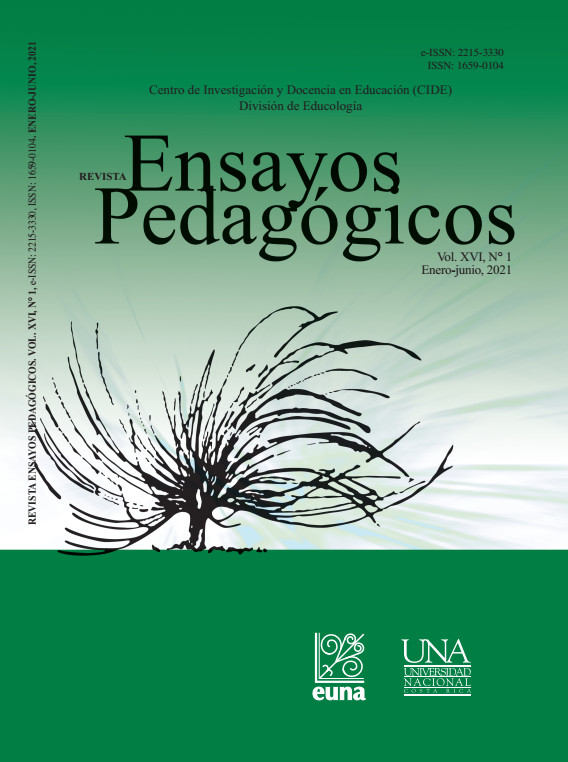Regionalization of Higher Education in the University of Costa Rica: From Democratization of Access to an Epistemic Democratization
DOI:
https://doi.org/10.15359/rep.16-1.8Keywords:
higher education, democratization of education, educational policyAbstract
This essay offers a critical analysis of the regionalization process that the University of Costa Rica has undergone. First, an overview of the combination of aspects that originated this project is shown in order to reconstruct the idea of “regionalizing the university” based on the notions, prejudices, and limitations of that time. From there on, it is inferred that the purpose of regionalization is to democratize the access to higher education following an administrative, legal, and epistemological subsidiary logic. For that reason, the proposal is to move forward from “democratizing the access” to higher education to an “epistemic democratization” that offers a decolonizing vision of knowledge. This vision will raise awareness of the limitations in the current dichotomous model of regionalization, which juxtaposes center and periphery and it is evidently controlled by the metropolitan area of the country, along with its impact on the regional campuses of the university.
References
Castoriadis, C. (2013). El ascenso de la insignificancia. Mediterráneo Económico, 23, 63-76. Recuperado de https://dialnet.unirioja.es/servlet/articulo?codigo=4547753
Castro, S. (2012). Costa Rica frente a la regionalización de la educación superior: el primer Centro Universitario en San Ramón, Alajuela. San Ramón, Alajuela: Sede de Occidente, Universidad de Costa Rica: Coordinación de Investigación.
Consejo Universitario, Universidad de Costa Rica. (1967a). Acta de la sesión 1582, del 6 de julio de 1967.
Consejo Universitario, Universidad de Costa Rica. (1967b). Acta de la sesión 1594, del 11 de setiembre de 1967.
Consejo Universitario, Universidad de Costa Rica. (1972). Estatuto Orgánico de la Universidad de Costa Rica. Recuperado de http://www.cu.ucr.ac.cr/normativ/estatuto_organico.pdf
De Sousa, B. (2010). Descolonizar el saber, reinventar el poder. Montevideo, Uruguay: Ediciones Trilce. Recuperado de http://www.boaventuradesousasantos.pt/media/Descolonizar%20el%20saber_final%20-%20Cópia.pdf
De Sousa, B. (2011). Epistemologías del sur. Utopía y Praxis Latinoamericana, 16(54), 17-39. Recuperado de http://www.boaventuradesousasantos.pt/media/EpistemologiasDelSur_Utopia%20y%20Praxis%20Latinoamericana_2011.pdf
Krugman, P.; Robin, W. y Onley, M. (2011). Introducción a la Economía. Barcelona, España: Editorial Reverté.
Méndez, J. (2012). Descolonización del saber. Una mirada desde la epistemología del sur. Estudios Culturales, 10, 82-89 Recuperado de http://servicio.bc.uc.edu.ve/multidisciplinarias/estudios_culturales/num10/art9.pdf
Molina, I. (2003). Identidad nacional y cambio cultural en Costa Rica durante la segunda mitad del siglo XX. San José, Costa Rica: Editorial UCR.
Molina, I. (2007). Educación y sociedad en Costa Rica: de 1821 al presente (una historia no autorizada). Revista Electrónica de Historia, 8(2), 148-356. Recuperado de https://revistas.ucr.ac.cr/index.php/dialogos/article/view/18349
Ocampo, J (2008). Paulo Freire y la pedagogía del oprimido. Historia de la Educación Latinoamericana, 10, 57-72 Recuperado de http://www.redalyc.org/pdf/869/86901005.pdf
Quijano, A. (2000). Colonialidad del poder, globalización y democracia. Recuperado de https://rrojasdatabank.info/pfpc/quijan02.pdf
Ruiz, A. (2001). La educación superior en Costa Rica: tendencias y retos en un nuevo escenario histórico. San José, Costa Rica: Editorial de la Universidad de Costa Rica. CONARE.
Sojo, C. (2010). Igualiticos: la construcción social de la desigualdad en Costa Rica. San José, Costa Rica: Master Litho, PNUD.
Soto, O.; Carro, A. y Gutiérrez, C. (1967). Consideraciones preliminares sobre la creación de los Centros Universitarios Regionales. San José: MIMEO.
Published
How to Cite
Issue
Section
License
Ensayos Pedagógicos is subscribed to the Attribution-NonCommertial-NoDerivatives 4.0 International Creative Commons Licence, which allows both authors and readers to freely download, store, copy, and distribute the final approved publisehd version of the manuscript (post-print) as long as this is done without commercial purposes, no derivative works are generated, and the source and author are mentioned. As well, Ensayos Pedagógicos declares that authors will remain the rightful owners of the copyrights of their work in perpetuity.







